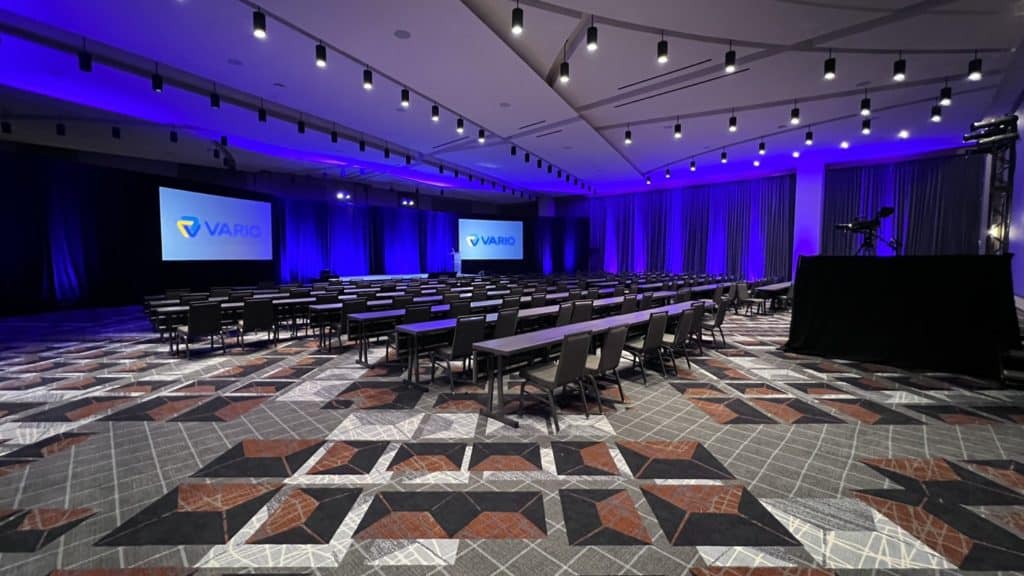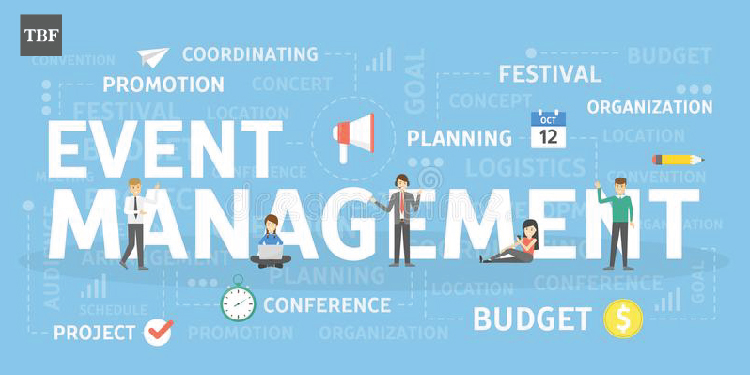A Deep Study Just How Event Management Functions to Produce Memorable Experiences
Event management is a complex technique that integrates different components to craft extraordinary experiences. It requires a clear understanding of the event's objective and audience. Coordinators need to browse budgeting, logistics, and advertising and marketing to ensure a seamless implementation. Each element plays a crucial function in attaining the wanted influence. The journey does not finish with the event itself. There are insights to reveal that can form future undertakings.
The Basics of Event Management
Efficient event management incorporates a variety of necessary principles that lead the preparation and implementation of successful occasions. At its core, it entails recognizing the event's purpose, audience, and wanted end results. Recognizing the target group is critical, as it informs choices connected to content, marketing, and logistics.
Budgeting is another basic aspect, guaranteeing that sources are assigned effectively while satisfying the event's objectives. This includes preparation for unforeseen expenses that might occur.
Time management plays an important duty, as event managers must develop a comprehensive timeline to coordinate various jobs and milestones.
Furthermore, reliable interaction among stakeholders, suppliers, and team members is important to guarantee positioning and stay clear of misconceptions.
Ultimately, danger management should be considered, with contingency strategies in place to attend to prospective obstacles, thus boosting the overall experience for guests and assuring a seamless execution of the event. (charlotte event companies)

Secret Functions in Event Planning
In event planning, recognizing essential duties is vital for successful implementation. The event organizer is in charge of managing logistics and making sure all aspects align with the vision. Additionally, effective vendor management is essential for maintaining top quality and fostering solid partnerships throughout the planning procedure.
Event Coordinator Responsibilities
An event organizer orchestrates the complex elements of event planning, ensuring seamless implementation from fertilization to conclusion. They are accountable for conceiving the event theme, setting spending plans, and creating timelines to keep the job on the right track. Sychronisation with stakeholders, including customers, venue supervisors, and volunteers, is important to line up expectations and promote interaction. The planner additionally looks after logistics, such as wedding catering, transportation, and modern technology requires, making certain all components work harmoniously. They carry out site brows through, manage routines, and troubleshoot problems that may occur during the event. Post-event, the coordinator assesses the event's success, collecting responses and analyzing outcomes to notify future tasks. This complex role requires solid business abilities, interest to information, and efficient social communication.
Supplier Management Basics
Guiding via the landscape of supplier management is vital for successful event preparation. Reliable supplier management includes identifying, picking, and collaborating suppliers that offer critical solutions, such as food catering, audiovisual assistance, and design. Event coordinators must maintain solid interaction with vendors to assure that all elements line up with the event's vision. Secret functions consist of the supplier supervisor, who oversees agreements and arrangements, and the logistics planner, in charge of on-site setup and execution. It's vital to develop clear expectations and timelines, promoting a collaborative environment that boosts the overall experience. By focusing on these components, event coordinators can browse possible obstacles, making certain that every information adds to a seamless and unforgettable event.
Crafting a Vision: Principle Advancement

As soon as a vision is established, it comes to be crucial to equate it right into workable parts. This consists of defining the atmosphere, picking proper venues, and establishing the event's style. Working together with stakeholders, including sponsors and partners, additionally refines the idea, guaranteeing that all parties share a combined understanding of the event's objective. Ultimately, a strong vision not only enhances guest involvement however additionally sets the stage for remarkable experiences that reverberate long after the event wraps up.
Budgeting and Source Allocation
With a clear vision in position, the next step in event management involves mindful budgeting and resource allocation. This crucial phase guarantees that all needed components are funded and lined up with the event's purposes. Event supervisors begin by estimating costs connected with location selection, catering, entertainment, and advertising. They produce a detailed spending plan that lays out each group, enabling for openness and accountability.
Resource allotment prolongs beyond finances; it likewise includes personnels. Identifying team duties, responsibilities, and timelines is necessary to ensure efficiency. Event supervisors should also consider contingencies for unforeseen expenses or adjustments in range, developing a barrier within the budget plan.
Prioritizing investing on elements that enhance visitor experiences is essential. By tactically allocating sources, event supervisors make the most of effect while preserving financial control. This self-displined technique not just fosters effective events however also develops credibility and depend on with stakeholders and individuals.
Logistics: The Foundation of Event Execution
While budgeting lays the foundation for an occasion, logistics work as its foundation, ensuring that every facet is performed smoothly and successfully. charlotte event companies. This includes a vast array of tasks, including location option, transportation setups, and equipment procurement. Efficient logistics management needs careful preparation and sychronisation to ensure that all elements straighten with the event's timeline and objectives
Secret parts of logistics consist of supply management, where supplies and products are tracked to avoid lacks, and staffing, which involves recruiting and training workers to deal with different jobs. Interaction is also important, as it helps with collaboration amongst suppliers, sponsors, and the event team.

Marketing and Promo Methods
Effective marketing and promotion approaches are important for taking full advantage of read the full info here presence and engagement at an event, as they create interest and exhilaration among potential individuals. Event supervisors employ a mix of standard and digital advertising techniques to reach their target market. Social media site platforms, email campaigns, and targeted advertisements are frequently made use of to create buzz and foster community communication. Cooperations with influencers or market leaders can enhance credibility, while engaging material such as video clips and reviews can resonate with potential guests.
Furthermore, leveraging event-specific hashtags and developing shareable graphics urges organic promo amongst participants. Early riser ticket deals and special promotions can incentivize registration, furthermore improving passion. A properly designed website that provides easy navigating and clear info about the event can boost the individual experience. By implementing these advertising and marketing and promotion strategies, event supervisors can guarantee greater exposure and inevitably produce a memorable experience for all individuals.

Gauging Success: Feedback and Examination
Success in event management hinges on robust comments and analysis mechanisms. These procedures are vital for establishing the performance of an event and determining areas for enhancement. By collecting input from attendees, organizers can assess complete satisfaction levels, understand choices, and evaluate general impact. Surveys and meetings act as important tools for accumulating quantitative go to my site and qualitative data, permitting for detailed analysis.
In addition, reviewing crucial efficiency signs (KPIs) such as participation rates, interaction levels, and return on investment (ROI) offers a clearer picture of event success. Post-event debriefing sessions with the preparation group likewise add understandings, cultivating a society of constant renovation.
Inevitably, an organized technique to comments and evaluation not only improves future events but additionally enhances connections with stakeholders. By executing these strategies, event supervisors can create memorable experiences that reverberate with participants and drive continuous involvement.
Often Asked Concerns
How Do Event Supervisors Manage Unexpected Challenges Throughout an Event?
Event managers deal with unexpected obstacles by staying calmness, evaluating the situation, and implementing contingency plans - charlotte event companies. They connect efficiently with their group, adapt quickly, and focus on options to assure the event proceeds smoothly and effectively
What Modern Technology Devices Are Vital for Modern Event Management?
Essential innovation devices for modern event management consist of event enrollment software application, job management applications, guest involvement platforms, and analytics tools. These sources simplify procedures, boost interaction, and improve overall event experiences for organizers and participants alike.
How Do Social Distinctions Influence Event Planning and Execution?
Social distinctions greatly influence event preparation and implementation. They influence motifs, custom-mades, communication styles, and expectations, requiring tailored techniques to assure inclusivity and respect, eventually forming the total experience and success of the event.
What Are the Ethical Considerations in Event Management?
Moral factors to consider in event management encompass openness, sustainability, cultural level of sensitivity, and inclusivity. Coordinators should prioritize fairness, regard varied target markets, decrease ecological effect, and warranty accessibility to produce accountable and unforgettable experiences for all participants.
Just How Can Sustainability Be Integrated Into Event Planning?
Sustainability can be integrated into event planning by utilizing green products, decreasing waste, sourcing local vendors, applying carbon offset programs, and promoting electronic solutions to minimize paper usage, this hyperlink thus improving ecological consciousness within the event's structure.